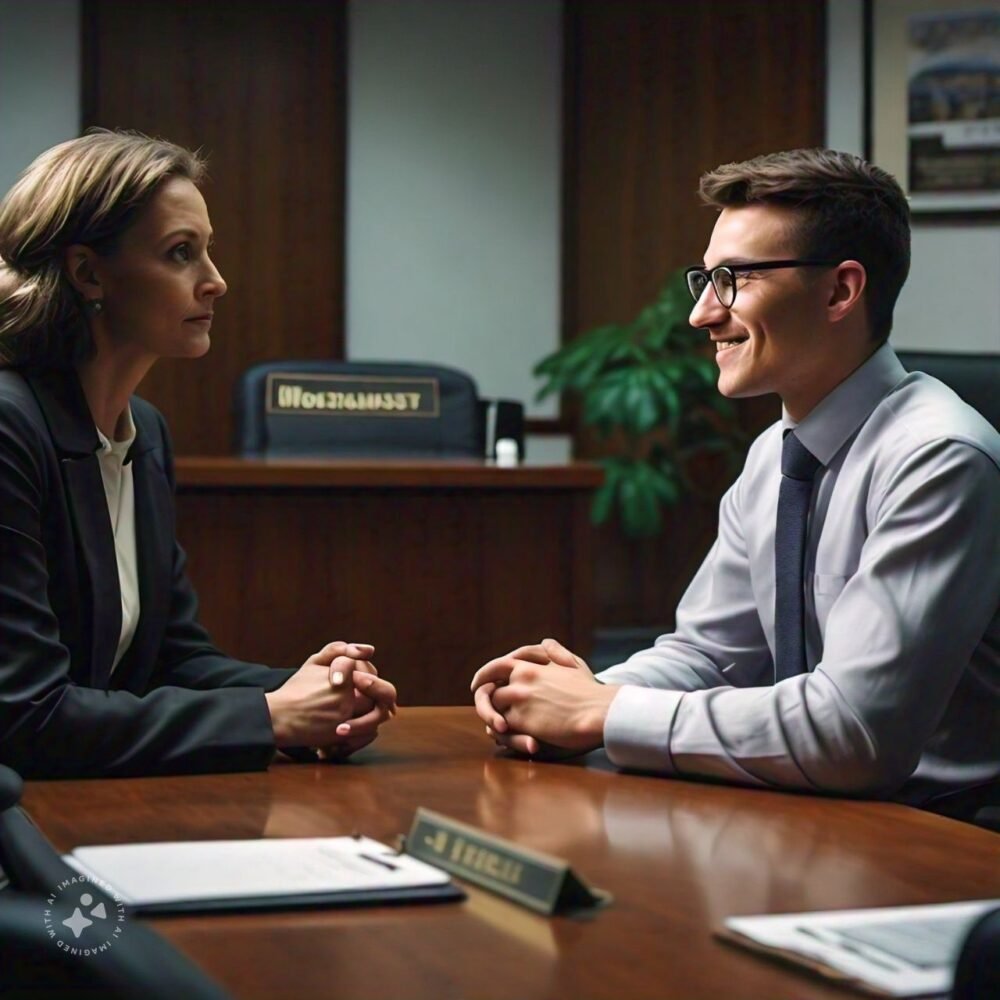Introduction
Job interviews can be nerve-wracking, but they are a crucial step in landing the job you want. Think of them as your chance to make a great first impression and show why you’re the best fit for the position. This article will teach you ten essential tips to ace your job interview.

Research the Company
Know the Company’s Mission and Values
Before you even step into the interview room, you should know the company’s mission and values. This shows that you’re genuinely interested in the company and its goals, and it helps you align your answers with what the company stands for.
Understand the Industry
Understanding the industry is just as important as knowing the company itself. Be aware of the latest trends, challenges, and opportunities within the industry. This knowledge will allow you to engage in more meaningful conversations during your interview.
Familiarize Yourself with Recent News
Stay up-to-date with the company’s latest news. This could include new product launches, recent awards, or any major changes in leadership. Mentioning these in your interview can demonstrate that you’re proactive and well-informed.
Prepare Your Answers
Common Interview Questions
Prepare answers to common interview questions such as “Tell me about yourself,” “What are your strengths and weaknesses?” and “Why do you want to work here?” Having well-thought-out responses ready will help you feel more confident.
Behavioral Questions
Behavioral questions are designed to see how you’ve handled situations in the past. Practice answers to questions like “Tell me about a time you faced a challenge at work” or “Describe a situation where you had to work with a difficult team member.”
Technical Questions
If the job requires specific technical skills, be ready to demonstrate your knowledge. Review the key concepts and be prepared to answer detailed questions or even perform practical tasks.
Dress Appropriately
Understanding Company Culture
The way you dress can set the tone for your interview. Research the company’s dress code. If in doubt, it’s better to be slightly overdressed than underdressed.
Professional vs. Business Casual
Know the difference between professional attire and business casual. For a corporate job, a suit and tie or a formal dress might be appropriate, while a tech startup might be more casual.
Grooming and Hygiene
Pay attention to grooming and hygiene. Clean, well-groomed hair, minimal makeup, and polished shoes can make a big difference in how you’re perceived.
Practice Good Non-Verbal Communication
Eye Contact
Maintaining eye contact shows confidence and interest. Practice this with a friend or in front of a mirror to ensure it feels natural.
Handshake
A firm handshake can make a strong first impression. Practice your handshake to ensure it’s neither too limp nor too strong.
Body Language
Your body language speaks volumes. Sit up straight, avoid crossing your arms, and use gestures naturally to emphasize points.
Bring Necessary Documents
Multiple Copies of Your Resume
Bring several copies of your resume. You might meet multiple people during your interview, and it’s good to have extras on hand.
Portfolio or Work Samples
If relevant, bring a portfolio or work samples. This can provide tangible evidence of your skills and achievements.
Reference List
Have a list of references ready, just in case the interviewer asks for it. Ensure your references are aware they might be contacted.
Be Punctual
Plan Your Route
Know exactly where you’re going. Check the route in advance and account for any possible delays, such as traffic or public transport issues.
Arrive Early
Aim to arrive at least 15 minutes early. This shows punctuality and gives you time to settle your nerves.
Account for Delays
If you’re delayed for any reason, contact the interviewer as soon as possible to let them know. This shows respect for their time.
Show Enthusiasm
Express Genuine Interest
Show genuine interest in the role and the company. Enthusiasm can be infectious and can leave a positive impression on your interviewer.
Ask Insightful Questions
Prepare a few insightful questions to ask your interviewer. This shows that you’re engaged and interested in learning more about the company.
Follow Up After the Interview
Always follow up with a thank-you note after the interview. This is a chance to reiterate your interest and leave a lasting impression.
Be Honest
About Your Skills and Experiences
Be honest about your skills and experiences. Exaggerating or lying can lead to trouble down the road if you can’t deliver on your promises.
Regarding Your Career Goals
Be clear about your career goals and how they align with the company’s goals. This shows that you’re thinking long-term.
When Answering Tough Questions
If you don’t know the answer to a question, it’s better to be honest than to guess. Admit that you don’t know but show willingness to learn.
Follow Up with a Thank-You Note
Timing of the Thank-You Note
Send a thank-you note within 24 hours of your interview. This keeps you fresh in the interviewer’s mind.
Content of the Note
Keep the note brief but sincere. Thank the interviewer for their time, reiterate your interest in the role, and mention something specific you discussed.
Email vs. Handwritten
Both email and handwritten notes have their merits. Emails are faster, but handwritten notes can add a personal touch. Choose the method that feels right for you.
Conclusion
Job interviews can be daunting, but with the right preparation, you can set yourself up for success. Research the company, prepare your answers, dress appropriately, and practice good non-verbal communication. Bring all necessary documents, be punctual, show enthusiasm, and always be honest. Following up with a thank-you note can leave a lasting impression. Remember, every interview is a learning experience, so take each one as an opportunity to improve.
FAQs
What should I bring to a job interview?
Bring multiple copies of your resume, a list of references, and if applicable, a portfolio or work samples.
How can I calm my nerves before an interview?
Practice deep breathing, visualize success, and remind yourself that being nervous is normal.
What if I don’t know the answer to a question?
Be honest and admit you don’t know, but express your willingness to learn.
How long should I wait to follow up after an interview?
Send a thank-you note within 24 hours of your interview.
What if I make a mistake during the interview?
Don’t panic. Acknowledge the mistake if necessary, correct it, and move on confidently.




Leave a Reply